▼ South Korean president arrested [03-31-17]
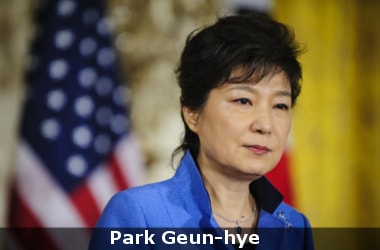 South Korea's ousted president Park Geun-hye has been arrested over the corruption and abuse of a power scandal that brought her down. South Korea's ousted president Park Geun-hye has been arrested over the corruption and abuse of a power scandal that brought her down.
She was taken to a detention centre in Seoul on March 31, 2017.
The Seoul Central District Court ordered Ms. Park’s arrest on charges of bribery, abuse of authority, coercion, and leaking government secrets, after a marathon court hearing the previous day.
Ms. Park, 65, becomes the third former leader to be arrested over corruption in Asia’s fourth-largest economy, where politics and big business have long been closely tied.
Being taken into custody is a dramatic step in the disgrace of South Korea’s first woman President, and was a key demand of the millions of people who took to the streets to protest against her as the scandal engulfed her leadership last year.
The former leader was grilled for nearly nine hours in court on Thursday as a judge deliberated whether she should be arrested.
She was stripped of her immunity when she was dismissed from office by the country’s top court earlier this month. She has denied the accusations against her.
An election to choose her successor will be held on May 9, 2017. Moon Jae-in, her rival in 2012 and a former Democratic Party leader leads opinion polls by large margins.
South Korea
- Capital: Seoul
- Code: +82
- Currency: South Korean won
- Prime minister: Hwang Kyo-ahn
- Population: 50.22 million (2013) World Bank
|
▼ Obamacare repeal eludes Trump [03-24-17]
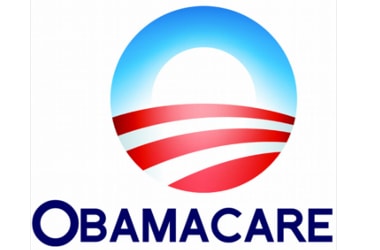 GOP House leaders delayed a promised vote on March 24, on the bill to repeal and replace Obamacare. GOP House leaders delayed a promised vote on March 24, on the bill to repeal and replace Obamacare.
This is a massive setback for US President Donald Trump and House Speaker Paul Ryan.
The legislative test came after Trump, who was a master dealmaker failed to reach agreement with rebel Conservatives and moderate leaning Republicans.
The bill could come to a vote in some days, but the cancellation of the Friday vote was a defeat.
This is on the 7-year anniversary of Obama signing the Affordable Care Act.
House Freedom Caucus Chairman Mark Meadows RNC refused the bill after trying to get concessions to reduce requirements on insurance companies.
The Republican legislation would have halted tax penalties against people who don't purchase coverage and cut federal state Medicaid program for low income people.
The Republican bill sought to provide tax credits to pay medical bills, permitting insurers to charge older Americans more and repeal tax boosts the law imposed on health industry and high-income people.
Measures would also block federal payment to Planned Parenthood for another year.
|
▼ Peshawar HC: Separate counting of Sikhs in nation-wide census [03-24-17]
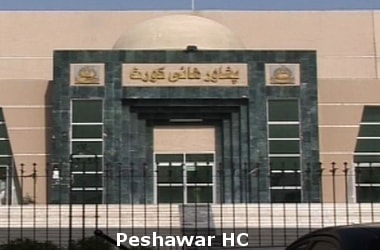 The Peshawar High Court on 22 March 2017 ordered authorities to ensure separate counting of Sikhs in the nation-wide census. The Peshawar High Court on 22 March 2017 ordered authorities to ensure separate counting of Sikhs in the nation-wide census.
The order came after the community members filed a plea for not being counted among the religions. The court ordered that the section of Sikhism be included in the religion column in the census form.
The first phase of the 6th census had clubbed Sikhs with the Scheduled Castes of the country while separately counting the Muslims, Hindus, Christians and some other groups.
The Sikhs community filed a petition in the high court, which ordered that the section of Sikhism be included in the religion column in the census form.
The high court directed that the implementation of the ruling should be carried out in the second phase of the population census, which would start from 25 April 2017.
Pakistan is holding its first census in 19 years.
The country conducted its last national population census in the year 1998. In the ongoing census in the country, only nine of its estimated 70 languages will be listed, which disappoints many communities.
No regional languages from sparsely populated Gilgit-Baltistan are included in the census form.
However, it is for the first time that around three million registered and unregistered Afghan refugees in the country will also be counted in the census.
It is also for the first time that transgendered citizens will be counted. The ongoing census will be concluded in two phases.
The first phase, which already started on 15 March 2017, will conclude on 15 April 2017. The second phase starts from 25 April 2017 and will conclude on 25 May 2017.
Sikhs in Punjab
- Sikhs form a very small community in present-day Pakistan.
- Most of the community members live in the province of Punjab and Peshawar in the Khyber-Pakhtunkhwa province.
- Nankana Sahib, the birthplace of Guru Nanak Dev Ji, is located in Pakistan’s Punjab province.
- Before the partition, significant populations of Sikhs inhabited the largest cities in the Punjab such as Lahore, Rawalpindi and Faisalabad.
- However, post-partition, the minority Hindu and Sikh migrated to India.
- In the decades following Pakistan’s independence in 1947, the Sikh community began to re-organise, forming the Pakistan Sikh Gurdwara Prabandhak Committee (PGPC) to represent the community in Pakistan.
|
▼ Women in Politics Map 2017 launched [03-20-17]
The Inter-Parliamentary Union and UN Women on March 15, 2017 launched the Women in Politics Map 2017.
Rankings demonstrated the number of women Heads of State or Government fell from 19 to 17 since 2015.
Progress in the number of women in parliament is gradual.
The Women in Politics Map 2017 report was launched alongside the 61st Commission of Status of Women.
The latter is the largest inter-governmental forum on women's rights and gender equality.
For 2017, the theme is on women's economic empowerment in the changing world of work.
Record of the Highest Number of Women in Parliament | Rank | Country | Percentage of women in Lower House | Percentage of women in Upper House |
|---|
| 1 | Rwanda | 61.3 | 38.5 | | 2 | Bolivia | 53.1 | 47.2 | | 3 | Cuba | 48.9 | None | | 4 | Iceland | 47.6 | None |
| 5 | Nicaragua | 45.7 | None | | 6 | Sweden | 43.6 | None | | 7 | Senegal | 42.7 | None | | 8 | Mexico | 42.6 | 36.7 | | 9 | Finland | 42.0 | None |
| 10 | South Africa | 42.0 | 35.2 |
The world ranking of women parliamentarians was placed in India at rank 148. The report states that women constitute 11.8 percent of the LS where 64 were elected to a 542 member house and 11 percent of the RS with 27 of 245 members. India also attained the rank of 88, when it came to women ministers with the number 5 or 18.5% in the cabinet. Women hold important positions. Sumitra Mahajan is the Parliament Speaker while Sushma Swaraj is the Union Minister for MEA. Sumitra Mahajan: Know More- Speaker of the 16th LS.
- Born: 11 April 1943, Chiplun
- Party: Bharatiya Janata Party
- Education: Devi Ahilya Vishwavidyalaya
|
▼ Scotland wants independent referendum [03-14-17]
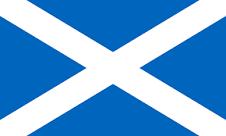 Scottish first minister Nicola Sturgeon on March 13, 2017 demanded a new independence referendum to be held in late 2018 or early 2019. Scottish first minister Nicola Sturgeon on March 13, 2017 demanded a new independence referendum to be held in late 2018 or early 2019.
This is once the terms of Britain's exit from the European Union have become clearer.
A vote that could rip apart the United Kingdom just months before Brexit adds a tumultuous twist and highly uncertain consequences to the two-year process of leaving the EU after more than four decades.
PM Theresa May is poised to launch the Brexit process, something opposed by most Scots in last June's vote on leaving the bloc.
Ultimately it is the UK parliament in Westminster–where May commands a majority–which makes the call on whether Scotland can hold a second referendum.
Sturgeon has previously said she wanted Scotland to be allowed to strike its own deal with the EU to keep access to the bloc's tariff-free single market.
The results of the June 23 Brexit referendum called the future of the UK into question because England and Wales voted to leave the EU but Scotland and Northern Ireland voted to stay, with an overall 55 percent in favour of leaving.
Scots rejected independence by 55-45 percent in a referendum in September 2014, though the vote energised Scottish politics and support for the SNP has surged since then.
|
▼ British parliament approves Brexit [03-14-17]
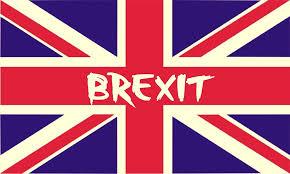 Britain lurched closer to leaving the European Union on March 13, 2017 when Parliament stopped resisting and gave Prime Minister Theresa May the power to file for divorce from the bloc. Britain lurched closer to leaving the European Union on March 13, 2017 when Parliament stopped resisting and gave Prime Minister Theresa May the power to file for divorce from the bloc.
But in a blow to May's government, the prospect of Scotland's exit from the United Kingdom suddenly appeared nearer, too.
Scottish First Minister Nicola Sturgeon called for a referendum on independence within two years to stop Scotland being moved out of the EU against its will.
The House of Commons approved the bill weeks ago, but the 800-strong Lords fought to amend it, inserting a promise that EU citizens living in the UK will be allowed to remain after Britain pulls out of the bloc.
They also added a demand that Parliament get a meaningful vote on the final deal between Britain and the remaining 27 EU nations.
Both amendments were rejected on March 13 by the Commons, where May's Conservatives have a majority.
A handful of pro-EU Conservatives expressed their unhappiness, then abstained from the vote.
The bill returned to the Lords, in a process known as parliamentary ping pong.
Faced with the decision of the elected Commons, the Lords backed down and approved it without amendments.
Once the bill receives royal assent, May will be free to invoke Article 50 of the EU's key treaty, triggering two years of exit negotiations, by her self-imposed deadline of March 31.
The House of Commons and House of Lords battled over the bill's contents, with the status of EU nationals in Britain drawing especially emotional debate.
Pro-EU lawmakers accused the government and Brexit-backing lawmakers of running roughshod over the concerns of the 48 percent of Britons who voted to stay in the EU.
|
▼ The Netherlands bars Turkey's FM [03-14-17]
The Netherlands barred Turkey's foreign ministry from flying to Rotterdam on 11th March 2017. President Erdogan called his Nato partner a Nazi remnant as a row over Ankar campaigns against emigre Turkish voters rose.
Foreign Minister Mevlut Cavusoglu was prevented from attending a Turkish rally in support for Edrogan's sweeping powers.
Dutch Prime Minister Mark Rutte said that while the Netherlands and Turkey could search for an acceptable solution, Turkey was not respecting the rules relating to public gatherings.
The Netherlands: Know More - Capital: Amsterdam
- Code: +31
- Currency: Euro
- Official languages: Dutch, Papiamento, Frisian
|
▼ Donald Tusk - EU council President for second term [03-10-17]
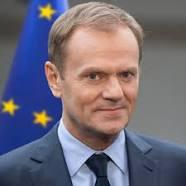 EU leaders confirmed Donald Tusk for the second term as the council president on March 9 2017. This is against opposition from native Poland which retired by seeking to hold up proceedings in joint summit. EU leaders confirmed Donald Tusk for the second term as the council president on March 9 2017. This is against opposition from native Poland which retired by seeking to hold up proceedings in joint summit.
Poland refused approving summit texts, raising unease at a time when the EU seeks unity. The crisis prone bloc is faced with a Brexit shortly.
PM Joseph Muscat of Malta holds the EU rotating presidency and indicated Poland decided to veto or not agree to the conclusions.
Poland has argued that the decision should be delayed on account of its displeasure with Tusk. Warsaw's government was isolated at the vote.
The council president chairs summits, coordinates the work of member countries and ensures that 28 nations speak with one voice on the global stage.
Poland’s nationalist government had proposed little-known Polish E.U. lawmaker Jacek Saryusz-Wolski to replace Mr. Tusk, whose current term ends May 31.
Mr. Tusk is a former prime minister who has a long and bitter rivalry with the leader of Law and Justice, Jaroslaw Kaczynski.
The government argues that Mr. Tusk supports the domestic opposition in Poland and has failed to protect the country’s interests in the E.U..
Apart from Mr. Tusk, EPP politicians Jean-Claude Juncker and Antonio Tajani head the EU’s executive Commission and the European Parliament, respectively.
European Parliament: Know More
- Headquarters: Luxembourg City, Luxembourg
- Founded: 10 September 1952, Europe
- Voting systems: Party-list proportional representation, Single transferable vote, First-past-the-post voting
|
▼ Attorneys in Hawaii first to file lawsuit against travel ban [03-10-17]
Attorneys for the state filed the lawsuit Wednesday in federal court in Honolulu.
The state had previously sued over U.S. President Donald Trump’s initial travel ban, but that lawsuit was put on hold while other cases played out across the country.
The revised executive order bars new visas for people from six predominantly Muslim countries and temporarily shuts down the US refugee program.
It doesn’t apply to travellers who already have visas.
Twenty percent of the people are foreign-born, 100,000 are non-citizens and 20 percent of the labor force is foreign-born in Hawaii.
Hawaii find the idea of a travel ban based on nationality distasteful because they remember when Japanese Americans were sent to internment camps during World War II.
Hawaii was the site of one of these camps.
US District Judge Derrick Watson granted the state’s request to continue with the case and set a hearing for March 15 the day before Mr. Trump’s order is due to go into effect.
It bars new visas for people from the six predominantly Muslim countries and temporarily shuts down the U.S. refugee program.
The order affects people from Iran, Syria, Somalia, Sudan, Yemen and Libya. It does not apply to travellers who already have visas.
While Hawaii is the first to sue to stop the revised ban, the restraining order is still in place and could apply to the new one, too.
|
▼ Sweden reintroduces conscription [03-3-17]
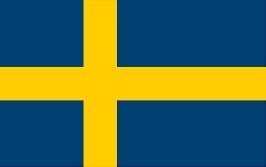 Sweden announced on March 2, 2017 that it will reintroduce compulsory military service starting this summer to respond to global security challenges, including from Russia. Sweden announced on March 2, 2017 that it will reintroduce compulsory military service starting this summer to respond to global security challenges, including from Russia.
The government wants a more stable staff supply system and to boost its military capability because the security situation has changed.
The Scandinavian nation, which has not seen armed conflict on its territory in two centuries, ended conscription in 2010 after it was deemed an unsatisfactory way of meeting the needs of a modern army.
Sweden’s minority government on March 2, 2017 was set to introduce to the Parliament a bill to restore conscription this summer for all Swedes born after 1999.
It will last for a duration of 11 months.
Some 13,000 young Swedes are expected to be mobilised from July 1, but only 4,000 of them will be selected for military service based on motivation and skills.
They will be called up each year after January 1, 2018.
Sweden is not a NATO member but has signed the body’s Partnership for Peace programme launched in 1994 to develop military cooperation between NATO and non-member countries.
On defence issues, Sweden is very close to its Finnish neighbour, which has with Russia a border of 1,340 km.
The Nordic and Baltic region’s only non-aligned countries, Finland and Sweden, have stepped up their military cooperation with US, following concerns over Russia’s increased military activity in northern Europe.
Sweden: Know More
- Capital: Stockholm
- Code: +46
- Currency: Swedish krona
- Population: 9.593 million (2013) World Bank
- Official language: Swedish
|
| Chronology of events |
|
Russia and China have vetoed a UN Security Council (UNSC) resolution that aimed to impose sanctions on Syria over chemical weapons use. The resolution was drafted by Britain, France and United States.
|
|
British Prime Minister Theresa May suffered her first parliamentary defeat over Brexit with the House of Lords voting in favour of an amendment to guarantee the rights of European Union (EU) citizens in the United Kingdom after the country leaves the bloc.
|
|
Sri Lanka is set to to scale back a profitable but controversial deal to sell a deep-sea port to a Chinese company after widespread protests, the Ports Minister said.
|
|
The Trump administration is rolling back an Obama administration rule requiring companies that drill for oil and natural gas on federal lands to disclose chemicals used in hydraulic fracturing, better known as fracking.
|
|
US Government has announced its support India’s full membership in the four multilateral export control regimes including Nuclear Suppliers Group (NSG).
|
|
New Zealand Parliament by passing legislation has recognised Whanganui River revered by the Maori Tribe as a “legal person” status. It is believed to be first of its kind move in the world.
|
|
British Prime Minister Theresa May on 28th March signed the historic letter that will launch Brexit when it is delivered to Brussels on 29th March, 2017.
|
|
U.S. President Donald Trump signed an executive order on 28th March 2017 to undo a slew of Obama-era climate change regulations that his administration says is hobbling oil drillers and coal miners, a move environmental groups have vowed to take to court.
|
|
China's government said today it has detained a Taiwanese pro-democracy activist and is investigating him on suspicion of "pursuing activities harmful to national security.” Spokesman for the Taiwan Affairs Office Ma Xiaoguang said Lee Ming-che, 42, was in good health, but gave no information about where he was being held or other terms of his detention.
|
|
US President Donald Trump has signed an executive order to roll back his predecessor Barack Obama’s climate change measures. The order was issued in order to lift the restrictions on American energy.
|
|
Turkey has announced end of its military campaign inside northern Syria without specifying whether it will pull its troops out from the neighbouring country.
|